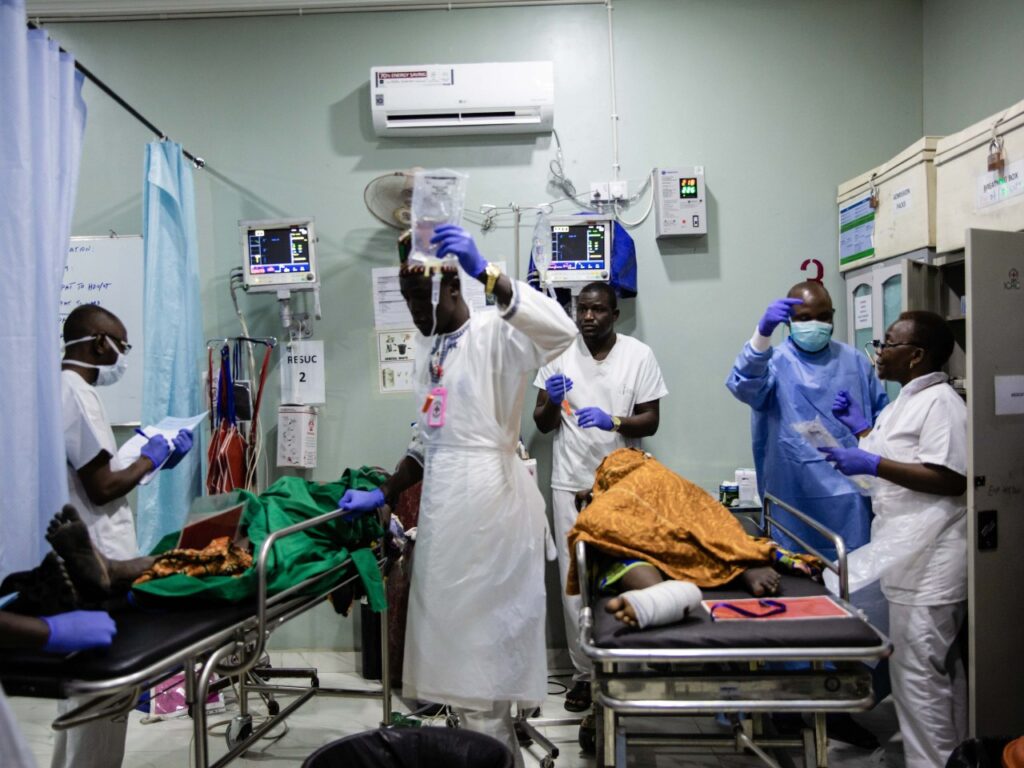Nurse anesthetists are advanced practice registered nurses (APRNs) responsible for administering anesthesia to patients. This practice specialty is unique among nursing careers, as the advanced training required for the job puts nurse anesthetists on a level similar to physicians. Nurse anesthetists work independently, often serving as the sole anesthetist within a practice or facility. In most countries, to become a nurse anesthetist, nursing professionals must earn a baccalaureate degree, a Master of Science in Nursing (MSN) degree and Certified Registered Nurse Anesthetist (CRNA) credentials. Training requirements also call for a minimum of one year of experience in an acute care or ICU setting.
What does a nurse anesthetist do?
Nurse anesthetists provide pain management in a variety of clinical settings, often treating surgical patients in hospitals. Additionally, these nurses tend to obstetric patients in labor and delivery, patients with chronic pain or trauma pain, dental patients or outpatients undergoing procedures in clinics offering specialty services like plastic surgery or podiatry. CRNAs are particularly needed in rural areas, where qualified physicians are often in short supply. In many states, they perform virtually all anesthetic administration in sparsely populated areas.
Nurse anesthetists care for patients before, during and after procedures. In most cases, patient care begins with a meeting where the patient’s medications, health status and expectations for the procedure are reviewed. The CRNA determines the appropriate analgesics and administers the correct dosage during the procedure, monitoring the patient’s vital signs continuously. Care ends when the patient has completely recovered from the effects of anesthesia.
Analgesics are delivered via gas, intravenous liquids or oral medication. Typical cases for CRNAs might include general anesthesia, twilight sleep for minor procedures, localized pain relief for outpatient procedures or pain management procedures for chronic pain or trauma patients. Some nurse anesthetists also manage therapy regimens for chronic pain patients.
Nurse Anesthetist Programs In Nigeria
The Post Basic Anesthetist programme, University Of Nigeria Teaching Hospital (UNTH)Ituku/ Ozalla, Enugu
The Nurse Anesthetist training programme is of 18 months duration. The courses in the programme are designed to 400 level course, arranged in three semesters and with a prefix of NAP (Nurse Anesthetist Programme). Annually, fresh students are admitted in April, to graduate in the month of November the following year.
On resumption of training, students spend the first four weeks in the classroom before being exposed to clinical practice. The training programme includes an exposure of at least twenty weeks outside the training institution, under the supervision of a physician anesthetist/ nurse anesthetist who attests to the student’s performance during the field work.
Each student has a minimum of 8 weeks night duty spread throughout the training programme.
ADMISSION REQUIREMENTS.
For admission into Nurse Anesthetist Educational Programme, the candidate must:
- Be a registered nurse with the N&MCN and must have at least three years post registration experience. (A post basic qualification is an advantage)
- Possess a minimum of five credits in physics, Chemistry, Biology, Mathematics, English language at the west African School Certificate level or its equivalent in not more than two sitting.
- Be self sponsored or fully sponsored by a private, government or voluntary agency.
- Pass a pre-admission examination and interview.
Jos University Teaching Hospital (JUTH) Post Basic Nursing Anesthesia
Jos University Teaching Hospital (JUTH) School of Post Basic Nursing Anesthesia admission requirements:
Applicant must be a registered Nurse (RN) with a current practicing license
Have at least one (1) year post-qualification experience preferably in theatre unit.
Hold the west African school certificate / senior secondary certificate / national examination council or general certificate of education at ordinary level with five (5) credits in English Language, mathematics, physics, chemistry and biology. READ: How To Become An Auxiliary Nurse In Nigeria
Click Here to Download: Full List of Approved Schools In Nigeria






